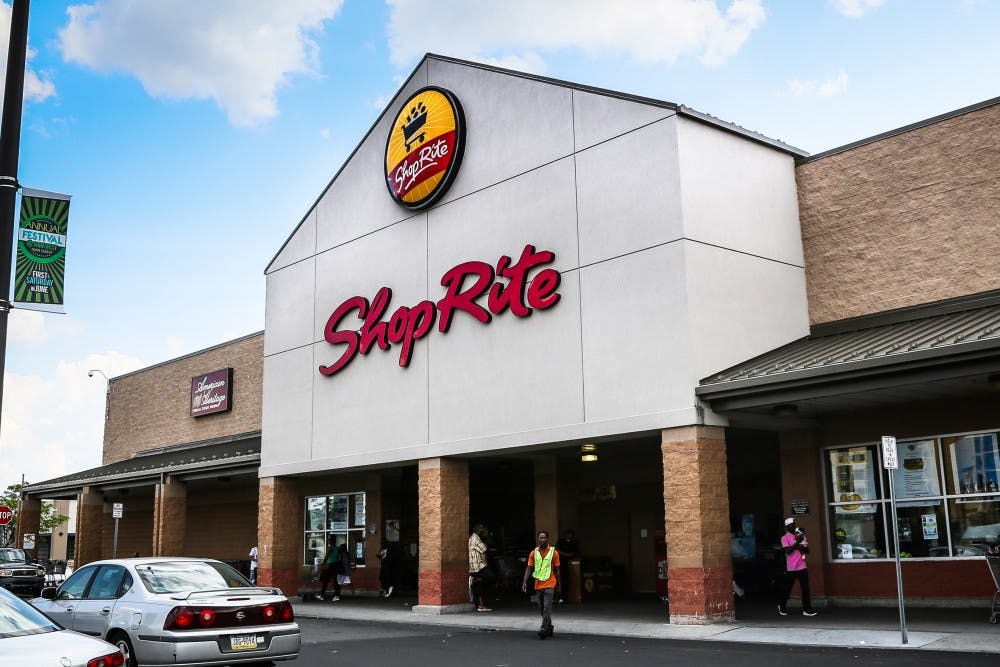Although many Penn graduate students head into the workforce when they finish their studies, not many immediately start working full time as the CEO of their own company after graduation. 2015 Wharton MBA graduate Julia Kurnik, however, achieved that feat, starting her post-graduation life by working full time on the startup that she founded in May 2014.
Kurnik’s company, FOCUS Foods Inc., won top prizes in April in the Carnegie Mellon University Summit New Venture Competition and in the social enterprise track of the Harvard Business School New Venture Competition, receiving over $130,000 in prizes, according to a press release.
“To me, it was something I’d been spending so much time on for the previous year that it was humbling but also thrilling to have this affirmation that yes, your work is going well and validating that your concept is one that other people can buy into,” Kurnik said.
“Without those awards, I may not have been able to [work full time on the company], so that was exciting and reassuring that I knew I could dedicate myself to the company full time when I graduated.”
FOCUS Foods Inc. is a public benefit corporation — a for-profit organization dedicated to social enterprise. The company hopes to create greenhouses that use waste from fish to create nutrients for vegetable plants, which then use up the converted waste and clean the water for the fish, creating a “completely sustainable system,” Kurnik said.
These farms will be installed on the roofs of supermarkets, so that the vegetables can be harvested and put on sale in the stores below in a matter of hours. Kurnik said that this allows the farms to significantly cut down on the greenhouse gases created by traditional farming and transportation of vegetables, as well as on the water and land required for it.
According to Kurnik, another significant impact that the farms have is health-related; the systems minimize the vitamin loss that usually occurs when vegetables take time to travel from farms to stores, which helps to combat obesity.
“Even if people are not buying any more vegetables than they are today, they’ll be replacing the ones they buy now with much higher quality ones, which will give them the micronutrients that they need to fight obesity,” she said. “We’re hoping the community will engage with our farm and buy more healthy fruits and vegetables [than they do now], but even if they don’t, we do think there is a health benefit.”
FOCUS Foods will launch a pilot farm on the ShopRite of Parkside in Philadelphia, which is operated by Brown’s Super Stores. The store is building an addition this summer and will specially reinforce its roof to support the weight of the farm. Kurnik hopes to start installing the farm in the fall.
Kurnik said that her company chose to work with this store because of the CEO of Brown’s Super Stores’ dedication to bettering his community and because reinforcing a new roof would be easier than working with an existing roof.
“What we would hope is that with our 10,000 square foot pilot up and running, we’ll be able to prove that this is working, and spread throughout Philadelphia, but then also grow beyond Philadelphia,” Kurnik said. “With each additional farm, our profit and our social impact mission are tied hand in hand — we’re growing, but that means we’re having a greater environmental impact, because that means we’re now growing healthier foods in a completely sustainable manner, and I would love to see that effect grow worldwide.”
Kurnik’s classmate and fellow 2015 Wharton MBA graduate Ben Shaffer said that he is impressed by how effectively she has managed to turn her idea for the company into a reality.
“I think what she has accomplished with FOCUS Foods is extraordinary. To me, what is incredible is the way she has quickly come up with a concept and gotten to a viable product,” Shaffer said. “She has shown people the promise [of] her prototype system and early partners, rather than just telling people it will be great.”
Kurnik said that she went into the Wharton MBA program planning to create a company and was pleasantly surprised to find that “the resources [Wharton has] put into entrepreneurship really show that that’s one of the growing areas that they care a lot about.” She encourages students hoping to start their own companies to take advantage of the wealth of opportunities they have at Penn.
“Being in school is a wonderful time to start a company, because you do have a safety net. You also have a great support system, because you have a lot of resources people are willing to give you as a student that you wouldn’t be able to get otherwise,” Kurnik said.
“Penn has so many resources, both at Penn and if you’re asking outside people for help, being a student at such a great school, people are just willing to sit down and talk to you and give you their time. I think that’s unique to being a student, and people should take full [advantage] of that to learn everything they can.”



